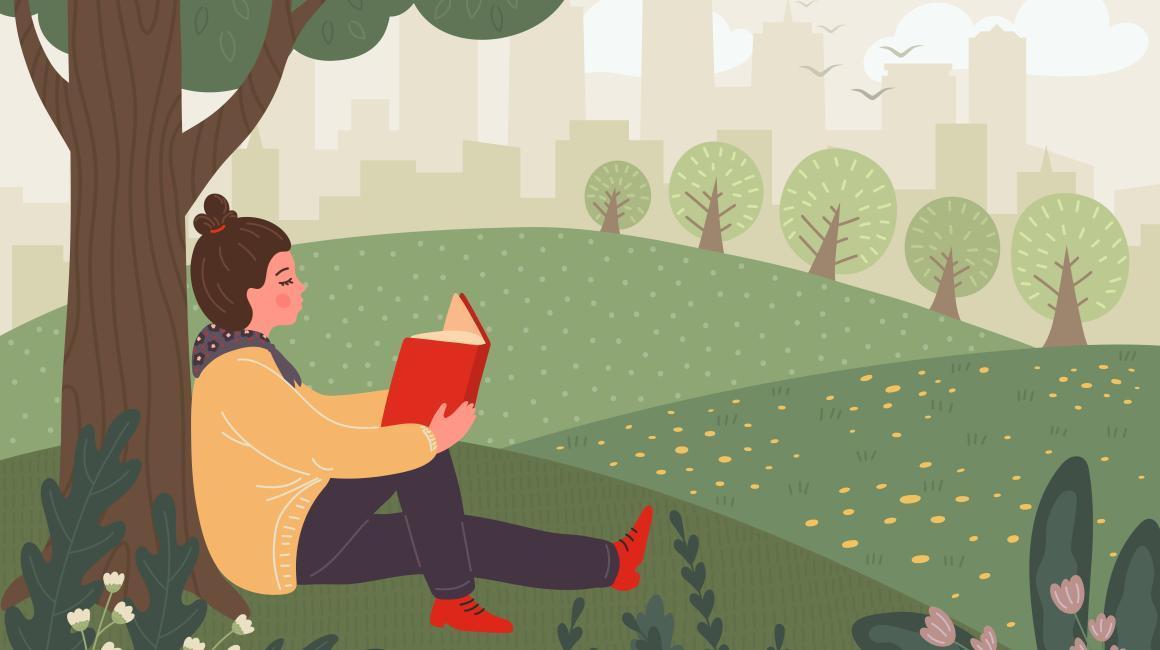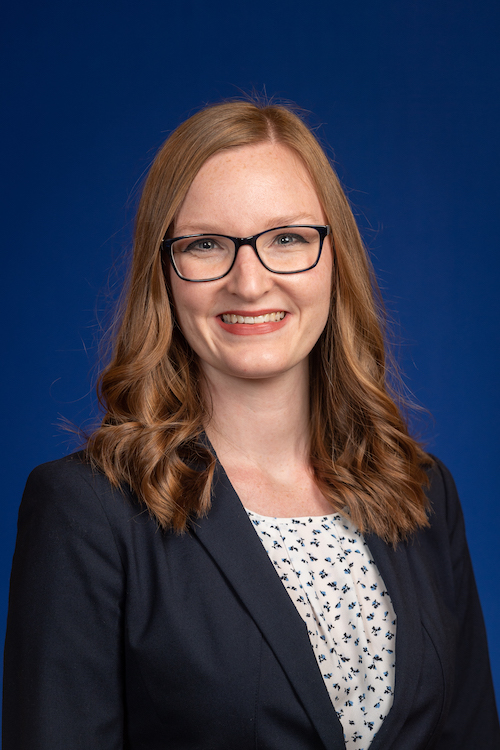
These days, Hillary Degner’s calendar is “pretty booked.” On a typical day, the coordinator of case management and support for Disability and Accessibility Services has several intake appointments with students seeking, for the first time, academic help relating to a disability — plus several more coaching sessions with students already using the university’s disability accommodations system. It’s a big jump even from last year, when Degner started a part-time role — which quickly turned into a full-time one — to help meet increasing demand from students, particularly for conditions like anxiety and depression. Based on what she’s hearing from them, there are a number of factors fueling this trend, the most obvious being the pandemic. Everything from social isolation to economic insecurity to fear about the virus have triggered a national spike in need for mental health services, including among college students. “And now that we’re getting back to more in-person classes, we’re seeing students struggle with that transition as well,” Degner says. “Everybody’s social skills are a little rusty, and we’re seeing students who previously never had anxiety feeling overwhelmed getting back into the swing of ‘normal’ life.”

Degner says students often don’t realize that anxiety and depression “count” as disabilities that qualify them for academic accommodations. Common measures, like additional time to take tests, taking exams in a distraction-reduced testing environment, or getting PowerPoint slides or other class materials ahead of time, are simple steps that have been shown to pay off for students with anxiety, depression, learning disabilities and ADHD. Even better, Degner and her colleagues have really dialed in the process for requesting and receiving accommodations so students can get what they need quickly and easily.
The process begins with an intake appointment, which students can request via the online student services portal. During these hour-long appointments, Degner or one of her colleagues will chat with students about what they’re experiencing and the accommodations that might be a good fit. If a student already has a diagnosis and documentation from their healthcare provider, it can be pretty quick to get an accommodation letter, which is then sent to a student’s professors. But students don’t actually have to have a diagnosis to make an intake appointment. “That’s probably one of the biggest misconceptions,” Degner says. “Some students think we won’t meet with them without documentation. But we value their story, we want to hear what they’re experiencing to determine what’s going to help them the most.” Sometimes, Degner says a student may not have a disability at all, but instead, may benefit from tutoring. Or if they suspect a student may be experiencing, say, anxiety or depression, they can refer them to Counseling and Psychological Services (CAPS). A CAPS therapist can help with a diagnosis and the necessary documentation, after which they can get rolling on an accommodations plan. If a student has to wait a bit for a diagnosis, Disability and Accessibility Services can also grant provisional accommodations. For example, Degner says due to a shortage of practitioners, getting a formal ADHD diagnosis can sometimes take more than a year. Provisional accommodations ensure students’ needs don’t go unmet due to circumstances totally beyond their control.
The accommodations system also has a lot of safeguards for privacy. Once a student has their accommodation letter, it is sent to their professors, but it only mentions what their accommodations are, not their disabilities. “Around the time we send their accommodation letters to professors, we encourage students to introduce themselves, but whether they want to talk about their particular disability is totally up to them,” Degner says. Staff can also get creative to find accommodations for more unique situations. For example, a student who experiences periodic migraines, which can strike unpredictably, can qualify for extra time on assignments, which students can then use as needed. Meanwhile, a student with a learning disability that makes it difficult to simultaneously listen and take notes during class lectures can get a notetaker or permission to record lectures on a laptop. With the noteaking accommodation, the professor typically asks if someone in the class is willing to share their notes. The notes then get passed along to the instructor, who hands them off to the student with the accommodation, so everyone’s privacy is preserved.
UM-Dearborn’s accommodations system also boasts a lot of built-in follow-up. Students actually have to check in with staff ahead of each semester to make sure their accommodations plan is still a good fit for their needs. Degner says it’s not uncommon for things to change: Sometimes students need accommodations one semester, but they might forgo them the next, if their life circumstances or class schedule leaves them feeling confident without them. The office also recently started offering support coaching, which gives students the opportunity to get more detailed guidance on things like better study habits or how to effectively communicate with their professors. Degner says some of her students come for coaching once in a while, while others like the accountability of having an appointment every week.
Journalism and Screen Studies student Crystal Jarvis, who’s been utilizing the accommodations program for several years now, says the biggest payoff is decreasing her level of stress. Jarvis has multiple sclerosis, a chronic neurological disease that often has symptoms similar to ADHD, and one of her biggest challenges is staying focused during tests. Disability and Accessibility Services recommended extended time for test taking, and that’s taken the sting out of one of her most stressful academic situations. Though it doesn’t fall directly under the office’s scope, they also helped connect her with a tutor — a senior Journalism and Screen Studies student who’s become an invaluable “extra set of eyes” on assignments before she turns them in to her professors. “Honestly, right from the start, everything about the process has been so easy,” she says. “When I first transferred to UM-Dearborn, the adviser saw that I had accommodations at my community college, and she walked me right over to the disabilities office and introduced me to the people there, and they set me right up.” Now, they send Jarvis a once-a-semester reminder to renew her accommodations. It’s usually just a quick Zoom call, where she tells them she’ll need “the same accommodations as last semester.” But knowing she has people in her corner gives her the confidence that she’ll have everything she needs to do her best.
###
Are you a student interested in learning more about accommodations from Disability and Accessibility Services? Visit their website to read more or schedule an appointment. Story by Lou Blouin.



